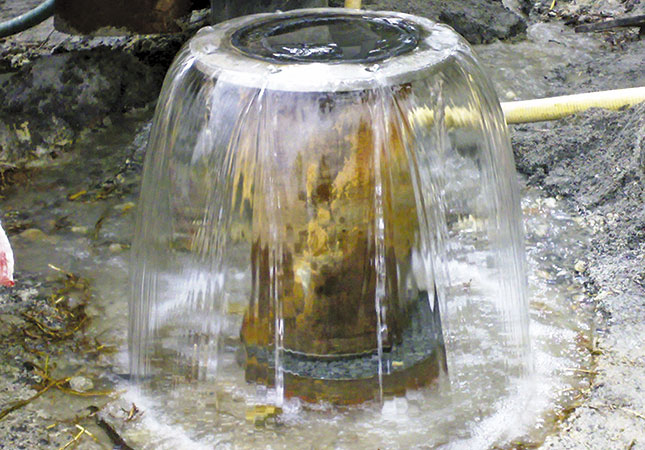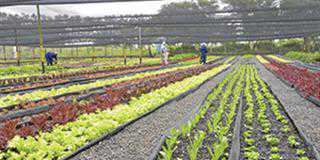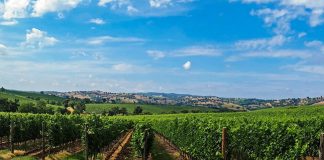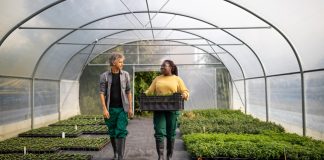
Photo: Desmond Visser
Obtaining legal authorisation as a water user allows a farmer to strengthen the risk profile of his business, as it may become difficult to sell or redevelop the property if the entity is not fully compliant with the National Water Act (NWA). The NWA mandates the Department of Water and Sanitation (DWS) – formerly the Department of Water Affairs (DWA) – to protect, manage and control South Africa’s water resources. The problem is that the DWS brought out only a single guideline for the application of water-use licences in 2007 and much confusion has therefore remained.
READ:Profits from diversification
In addition, the licensing process was initially hampered by long delays within the then DWA. There were also numerous incidences of errors in the issued licenses, making it difficult for the water user to comply with the law.
“Fortunately, there have been better systems put in place in recent years to speed up the licensing process,” says Candice Lasher, a hydrogeologist with SRK Consulting, which specialises in natural resource and development solutions. The aim of water use management According to Lindsay Shand, an environmental geologist with SRK, any farmer taking water from a surface water or groundwater resource, storing water, discharging effluent water, altering banks or impeding and diverting the flow of water in a watercourse, falls under Section 21 of the NWA – depending on the volume of water involved and the aquifer status of the quaternary catchment in which it is situated.
Also subject to the NWA are businesses such as wineries, food canneries and feedlots that discharge waste water or dispose of waste in any way that may affect a water resource. The aim of water management is to ensure that this increasingly scarce resource is used fairly and sustainablably. All licence applications are investigated to ensure there are no negative impacts on neighbours or other water users. Failure to do so could possibly lead to expensive remediation processes in the future.
For a farmer, registering his water uses now will support his claim to lawful water use before the NWA was promulgated, and will allow those uses to avoid prosecution for noncompliance, which carries hefty penalties. A person guilty of an offence – including illegal water use – can be fined and imprisoned for a period of up to five years for a first offence and 10 years for a second.
Registration fees
The cost of applying for a water-use licence varies widely depending on the specific nature of the water use. The fees commence at under R10 000 for a simple application, rising to about R100 000 or more if technical hydrological studies are required. A late registration penalty may also be charged for failing to register a water use within a specified time-frame. There is no registration fee and the licence fee itself “may be waived in deserving circumstances”.
Once registered, water users will be charged for the water that they use under the Raw Water Pricing Strategy. For now, only water users consuming significant amounts of water in two specific water uses will be billed, for example those water users taking water from a water resource (groundwater or surface water) and those users engaging in a stream-flow reduction activity. It is planned to roll out the billing over time to other water uses, in accordance with the provisions of the pricing strategy.
Water resource management charges are calculated from the actual costs of water activities within the water management area (WMA), per m³ of water used. In WMAs that are short of water, the relative management cost is higher than in WMAs with a greater amount of water available. The table above lists the water resource management charges per m³, according to the three main sectors – domestic/industrial, irrigation and forestry – per WMA.
As to how the money will be used, “the broad functions of water resource management include the spectrum of investigation, monitoring and planning, determining the need for infrastructure and the development of new schemes or the extension thereof, pollution control, the clearing of invading alien plants and the protection of water resources,” the DWS states.
How to register
The relevant water-use registration and licensing application forms can be downloaded from the DWS website: www.dwa.gov.za.
Detailed instructions on how to fill out the forms and any updates that may affect the process will also be found here.
Alternatively, call the toll-free line on 0800 200 200 and ask for the registration help desk at the regional office that serves your area.
Phone Desmond Visser, associate partner and principal hydrogeologist at SRK Consulting (SA) on 021 659 3060 or visit www.srk.co.za.
This article was originally published in the 15 May 2015 issue of Farmer’s Weekly.













